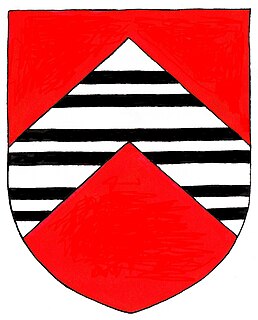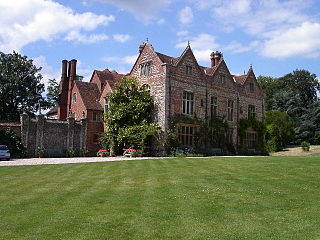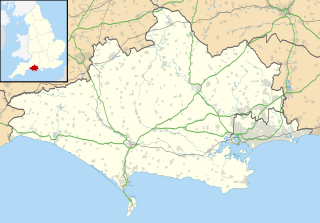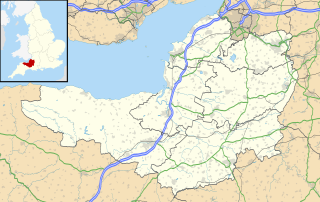
Sir William Waller was an English soldier and politician, who commanded Parliamentary armies during the First English Civil War, before relinquishing his commission under the 1645 Self-denying Ordinance.

Ralph Hopton, 1st Baron Hopton, March 1596 to September 1652, was a politician, soldier and landowner. During the 1642 to 1646 First English Civil War, he served as Royalist commander in the West Country, and was made Baron Hopton of Stratton in 1643.

Wantage is a constituency in Oxfordshire represented in the House of Commons of the Parliament of the United Kingdom by Conservative MP David Johnston.
Robert Knollys is the name of:
Sir John Ernle was an English politician who sat in the House of Commons at various times between 1654 and 1695. He was one of the longest-serving Chancellors of the Exchequer of England, a position he held from 2 May 1676 to 9 April 1689.
William Seymour Blackstone (1809–1881) was an English MP in the Parliament of the United Kingdom.

Hopton Castle is situated in the village of the same name which lies approximately halfway between Knighton and Craven Arms, in the English county of Shropshire. Hopton Castle featured in the British TV series Time Team in 2010. A ruin since the early 18th century, it was partially restored between 2006 and 2011, and was officially re-opened to the public as a visitor attraction in December 2011 by the Duke of Gloucester.

Edmund Dunch of Little Wittenham, Berkshire and Down Ampney, Gloucestershire, was an English Whig politician who sat in the English and British House of Commons between 1701 and 1719. He was Master of the Royal Household to Queen Anne.

Sir William Wyndham, 1st Baronet of Orchard Wyndham, Somerset, was Member of Parliament for Somerset in 1656 and twice for Taunton in 1659 and 1660. He was Sheriff of Somerset in 1679–80.
Sir Thomas Browne was a Member of Parliament and Chancellor of the Exchequer. Browne's tenure as Chancellor occurred during the Great Bullion Famine and the Great Slump in England. He was executed for treason on 20 July 1460.
Robert Packer of Shellingford, Berkshire was an English politician who sat in the House of Commons in two periods between 1646 and 1679, as well as being Usher of the Exchequer.

Sir Baynham Throckmorton, 3rd Baronet of Clearwell, Gloucestershire was an English politician who sat in the House of Commons at various times between 1656 and 1679.

Sir Robert Knollys (1588–1659) was an English politician who sat in the House of Commons between 1614 and 1629.
Robert Hopton was an English landowner and politician who sat in the House of Commons in two parliaments between 1604 and 1622.
William Hucks (1672–1740) was an English brewer and Whig politician who sat in the House of Commons between 1709 and 1740.

Thomas Wyndham MP JP DL, of Witham Friary, Somerset, was MP for Wells, Somerset in 1685 and re-elected in 1689.

The Battle of Babylon Hill was an indecisive skirmish that took place between Royalist and Parliamentarian forces near Yeovil, in South West England, on 7 September 1642, during the early stages of the First English Civil War. The engagement occurred after a failed Parliamentarian siege of nearby Royalist-held Sherborne. After the Parliamentarians retreated to Yeovil, a force of around 350 Royalists was sent to reconnoitre their movements. Under the command of Sir Ralph Hopton, the Royalist detachment established itself on Babylon Hill, on the outskirts of Yeovil.

The Battle of Marshall's Elm was a skirmish that took place near Street, in the county of Somerset, South West England, on 4 August 1642. The engagement occurred during the build-up to formal beginning of the First English Civil War on 22 August, while the Royalists and Parliamentarians were recruiting men in the county. The Royalists had established their regional headquarters in Wells, but were threatened by superior Parliamentarian numbers in the vicinity. The Royalist commander sent out a mounted patrol consisting of 60 to 80 cavalry and dragoons, which came across a force of between 500 and 600 Parliamentarian recruits travelling north across the Somerset Levels under the command of Sir John Pyne.
This page is based on this
Wikipedia article Text is available under the
CC BY-SA 4.0 license; additional terms may apply.
Images, videos and audio are available under their respective licenses.










